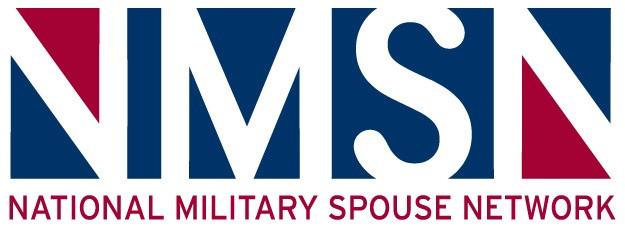



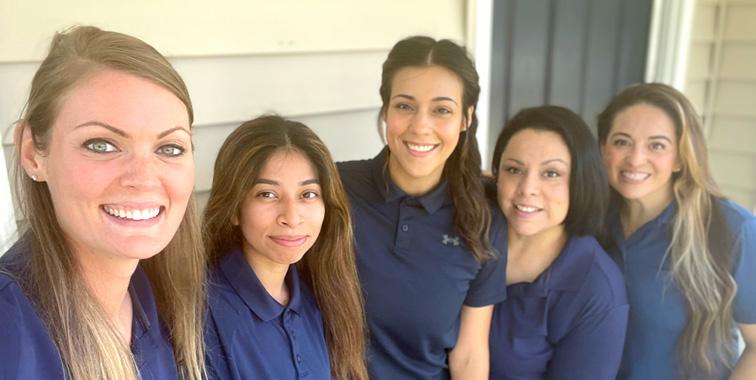












They say that the more things change, the more they stay the same. Despite all the time and commitment extended to removing the barriers to military spouse employment and entrepreneurship, we are still falling prey to outdated notions that military spouses "knew what they were signing up for". This concept implies that this community doesn’t deserve the extra consideration it takes to break down employment barriers erected by the military lifestyle because it somehow takes away from servicemembers. This message is particularly disappointing when it comes from legislators and retired service members. We must move away from the outdated notion that helping one group hurts another. If you’ve already read the 2024 NMSN White Paper, you’ll recognize this reflected in our very first recommendation:
RECOMMENDATION #1: Eliminate the false narrative we must choose between helping service members and veterans or military spouses. Pitting one military demographic against another promotes a culture of divisiveness, negativity and inequity that doesn’t align with the military’s core values.
As you thumb through the pages of this latest issue of our Career Connections, you’ll see examples over and over again of military spouses who ARE making it work and learn about organizations that support them in their career journey. But we cannot rest on our laurels. Our work is not done. For every company and leader that gets it, countless others do not. That’s why we still rally our community for our Annual Day of Advocacy and encourage you all to stay in touch with your legislators to remind them that you vote, you care and you’re watching.
In 2025, the Work Opportunity Tax Credit will be up for renewal. This is the perfect time for members to insert an amendment to expand the WOTC to include military spouses as a protected work group. But they’ll need military spouses and the military community to remind them that this is the right thing to do.
When change is so often slow, it’s important to keep our eyes on the prize and understand that we’re working toward long-lasting, generational change. We’ll have wins along the way the MOA signing at the White House but rather than signifying the end of the journey; these wins should encourage and serve as a reminder to continue advocating, pushing and iterating. Together, we can overcome the inertia and false narratives that exist.
Sue Hoppin Founder & President National Military Spouse NetworkIoften ask myself upsetting questions, questions that if we speak out loud would make quite a few folks uncomfortable. I also like asking questions that go unanswered. The one I ask myself about military spouse unemployment is, what if military spouse unemployment or underemployment is unavoidable?
Claudia Goldin won a Nobel Prize in Economics for her work looking at gender equity in the workforce. Instead of focusing on the gender pay gap, Goldin focuses on how couples divide labor. She says that it is less about gender and more about “greedy” work. Although her research focuses on gender, what she has learned about “couple’s equity” is a universal truth that applies to all genders. And, if ever there was a greedy boss it would be the United States Armed Forces.
When two people come together as a married couple, or partners, who share household and financial obligations, one of them will typically have more demanding work. Goldin calls this work “greedy work”. Some examples of greedy jobs are lawyers and medical residents (soon-to-be-doctors) whose career ladders often involve a great deal of overtime with the average work week extending far beyond the standard 40 hours to 66 hours and 80 hours respectively. While it is certainly possible for two people to have greedy jobs, often one of the two will have fewer demands on their time, which allows them to become the primary person “on call” for household responsibilities.
Historically, we would expect to see men holding greedier jobs because women were not expected to work outside the home. Instead, they were expected to stay home to raise children. As this social dynamic shifted in the 1970s and 80s, women began taking on more demanding roles that did not easily accommodate motherhood. They did
not have summers off to stay home and they no longer had the option to quit their jobs because two incomes had become increasingly necessary. Additionally, fields that once excluded women including the military have attempted to become more female/family-friendly. STEM fields went into elementary schools, emphasizing that women too could be in tech and science. Maternal leave policies helped make it easier for mothers to return to work instead of getting out of the workforce after having children.
The reason Goldin’s work is so groundbreaking–how she earned the Nobel Prize is that she studied these changes over time by grouping generations into five categories to see how, why and when college-educated women balanced their time inside and outside the home. She noted that some women held jobs, and some careers. Some had to choose between family and career, while others pursued both. Some delayed family, some delayed work.
• Group 1 (b. 1878-1897): Family or Career
• Group 2 (b. 1898-1923): Job, then Family
• Group 3 (b. 1924-43): Family, then Job
• Group 4 (b. 1944-57): Career, then Family
• Group 5 (b. 1958-78): Career and Family
Her work may not have set out to prove if women could have it all. But she did just that. What she found was that both men and women both perform greedy work, but women’s greedy work is clocked at home and goes unpaid
“Group 5 needed more than an assist. After facing down so many obstacles, after gaining countless freedoms, the obstruction that had always been there became crystal clear. The barrier is the time bind. Children require time; careers require time. Couple equity a sharing of that time could

enable them to achieve both career and family. But couple equity…is really expensive and is part of the reason for the continued gender earnings gap.”
Although this “time bind” is shifting, it’s not proportional. According to Goldin’s research, the time college-educated couples aged 25 to 34 years old spend with their children has increased from 18 to 31 hours per week from 1990 to 2015. While studies have shown that men have increased their participation in household duties, that increase doesn’t mean that women are doing less at home. In fact, the opposite is true. Mothers in 1990 spent “13 hours per week with their children but 21 hours in 2015”. But the time bind is not just for families who have children.
In the military community, military spouses are in charge of the Homefront. Many also have greedy careers. But unlike service members, military spouses can quit if the demands on their schedule put too much strain on their family dynamics. Shifts in military policies point to the fact that the military is aware that time spent with family and couples equity is important to younger generations. But as amazing as these family friendly policies are, deployments and operational tempo do not seem to be decreasing, despite the U.S. no longer being a nation at war.
And this is where my question gets interesting.
If the military is always going to be a “greedy” job is there any point in trying to correct military spouse unemployment?
Currently, the organizations leading the way in military spouse employment are led by military spouses or veteran military spouses. They focus
on creating resources for military spouses, writing resumes, connecting job seekers with employers and so much more. What they do not do is teach military spouses how to ask for what they need inside the home to be able to work outside the home.
In their book Women Don’t Ask, Linda Babcock and Sarah Laschever examine why some women are less likely to ask for what they need professionally, something that would push back against this greedy work. They wrote, “Even when women can imagine changes that might increase their productivity at work, happiness at home, or their overall contentment with their lives, their suppressed sense of entitlement creates real barriers to their asking. Because they’re not dissatisfied with what they have, and not sure they deserve more, women often settle for less.”
Male military spouses may not ask either if they are unsure if asking will get them anywhere. Because military spouses do not often find themselves in a situation where an equitable division of household labor is possible with or without children in the picture they not only don’t ask. They can’t ask.
Younger generations, regardless of gender or parental status, want less greedy employers. Employers combat this with financial compensation or other benefits. Finding a way to address greedy work is essential to reducing military spouse un/ underemployment and improving recruitment and retention overall. But if Goldin is right and household equity is linked to employment equity, military spouse-focused employment efforts may not do much.
So we need to stop and ask ourselves, is it possible for the military to be less greedy? Sadly, I don’t know.

Jennifer Barnhill is a columnist for military.com and the host of Military Dinner Table Conversations , a monthly reverse town hall with military families. She is a 2023 Bush Institute StandTo Veteran Leadership Program Scholar, the editor-in-chief of the National Military Spouse Network ’s Career Connections Magazine and the military spouse liaison on The League of Wives Memorial Project
Iworked at a hookah bar because it was the only place that would hire me.”
“If I were any other spouse [I wouldn’t have my job]. Because of my husband’s position, I was an SFRG leader. I spoke with a commander’s wife who was able to help me [get a job].”
“I’ve felt for a long time that I didn’t get to have the career that I wanted… Ultimately, I had this desire to continue working.”
Perhaps these stories—shared by the individuals featured in this article—sound like yours or your military spouse friends. It’s no secret that well-paying, long-term employment is a hot-button issue, not only in the spouse community but in the wider national conversation—especially as it relates to military family financial readiness and food insecurity.
Now, more than ever, there are career programs and resources created specifically for military spouses looking to improve their chances of employment. Many are online and free, making them widely accessible to spouses, regardless of their financial situation or current location.
Military spouse employment is an intersectional issue that seemingly has no clear solutions. 90% of military spouses are
women, a segment of the population that historically has had significant challenges in employment for various reasons, including discrimination and child care access. The average unemployment rate for U.S. adults over the last ten years is 5.3%; even during the 2020 COVID pandemic, the unemployment rate topped out at 8.05%
And yet, the unemployment rate for spouses has remained nearly unchanged at 21% since 2015, despite federal, nonprofit and private entities’ increased focus on reducing that number.
With so many resources at spouses’ fingertips, the needle has not moved. Why? To learn more about what is and isn’t working from a boots-on-the-ground perspective, we spoke with four military spouses who are at varying places in their careers:
• Maggie Van Lieshout, a corporate communications manager and military spouse of three years who has been continuously employed since graduating from college.
• Ali Simon, a military spouse of 14 years who transitioned from a career in education to one as a project manager and entrepreneur as the co-founder of the Teacher Shift podcast. She spent time away from a

Pursuing greater flexibility for her family, Ali Simon changed her career and founded a podcast that focuses on educators who leave teaching.
traditional career when her children were young.
• Mika Murphy, a yoga teacher who is currently “geobaching” or living apart from her husband of seven years so she can pursue a law degree.
• Samantha Bañuelos, a brandnew military spouse who is hoping to continue her college education at their new installation after a PCS this spring.
While reflecting on the state of career resources in the military community, the spouses we spoke to were most familiar with longstanding programs like My Career Advancement Account (MyCAA) and Hiring Our Heroes.
Van Lieshout used MyCAA to earn a project management certificate during the pandemic. Overall, she said it was a positive experience, and a program and certification she wishes more spouses would take advantage of to further their own careers. Murphy had a similar experience while using MyCAA to obtain a paralegal certification, even though she was unable to use it before attending law school. “[MyCAA] was really easy to access and use. I really appreciated that,” she reflected.
Many career resources are available to military spouses— not only service members and veterans—which is vital and welcome. These offerings—like those through IVMF and Veterati provide valuable, accessible content like mentorship, courses and certifications. “I’ve noticed a big improvement in the last three years. Programs that used to be for veterans only are open to military spouses, and that’s really impactful,” said Simon.
A recurring complaint from interviewed spouses was the breadth and depth of career curricula available, including those that help with upskilling and mid-stream career changes. Today’s military spouses are more educated than their civilian counterparts. Sixty-eight percent hold a completed associate’s,
bachelor’s or advanced degree and 22% hold college credits, but no degree. These spouses are looking for employment help that goes beyond rote advice.
“Spouses are coming into the military with more work experience and education background so they need things that can support them in that space instead of adjusting them into entry-level fields,” pointed out Van Lieshout, who entered military life with a Master’s in Public Administration and having worked on a U.S. Presidential campaign.
“We need resources that can help us when we’re mid-way through our career, when we’re looking to climb a ladder or increase our responsibilities or grow as professionals,” Simon—who changed careers as a military spouse—added.
When it comes to on-installation, in-person career help, Murphy— who has struggled to find work outside of the hospitality industry—noted gaps in both
the resources available and the willingness of providers to assist military spouses in meaningful ways. “You go to career services and the only thing they do is tell you to go to a federal resume writing event. Period. End statement. ‘Get out of my office,’” she said. “There’s also an undertone of ‘no one wants to work anymore.’ That’s not the case. The [career] opportunities that are being presented to military families don’t fit their situations.”
A common denominator among spouses stationed with their partners at rural or small installations is the limited availability of networking opportunities, access to higher education and career help. “Living [in a rural area] has impacted a lot of opportunities for me,” Bañuelos said. “I thought I’d be able to continue school here, but… it’s not that easy for me to jump in because of the location that we’re in.” Simon emphasized the desire of military spouses at auxiliary bases to receive more attention and not just the main bases.
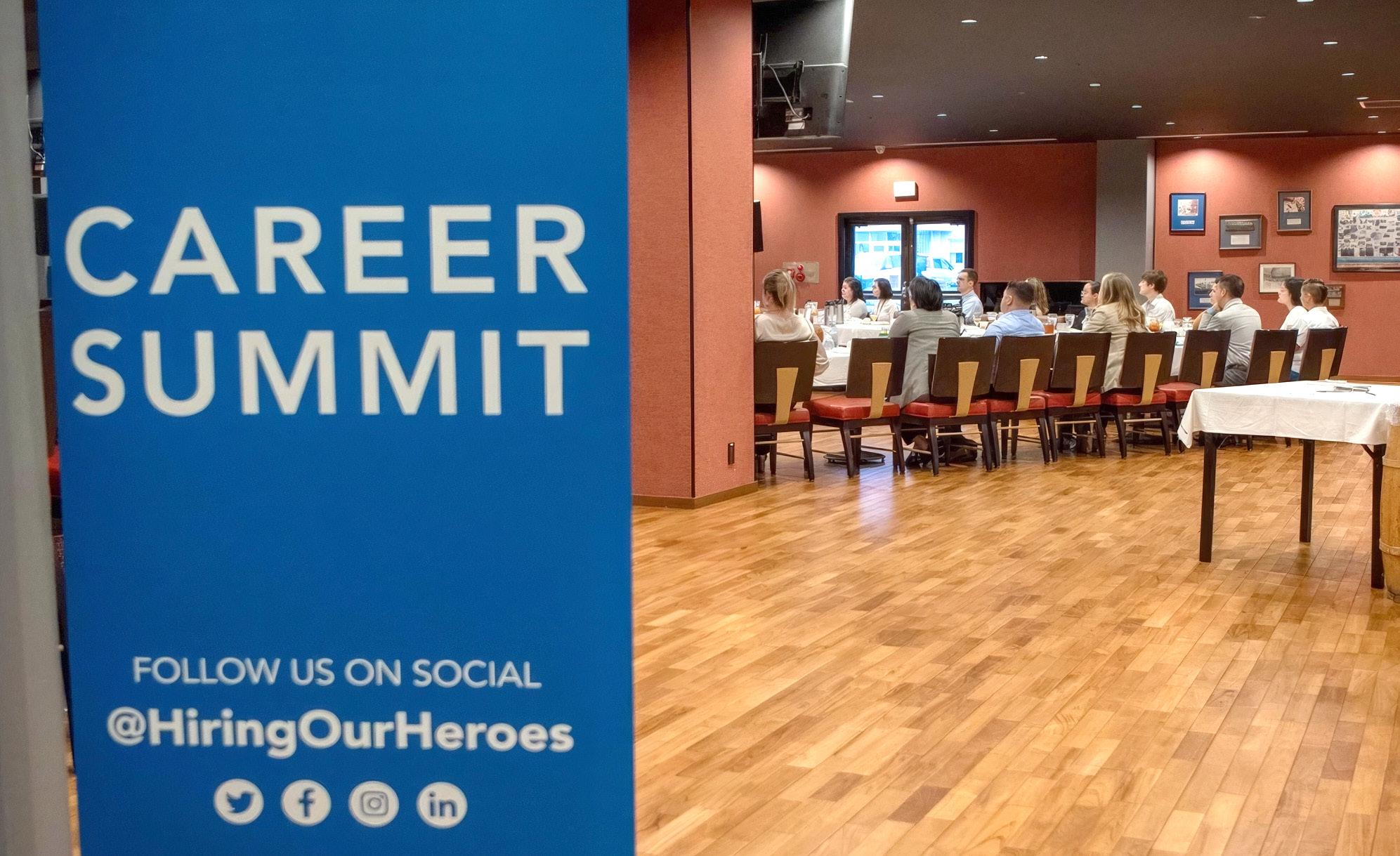
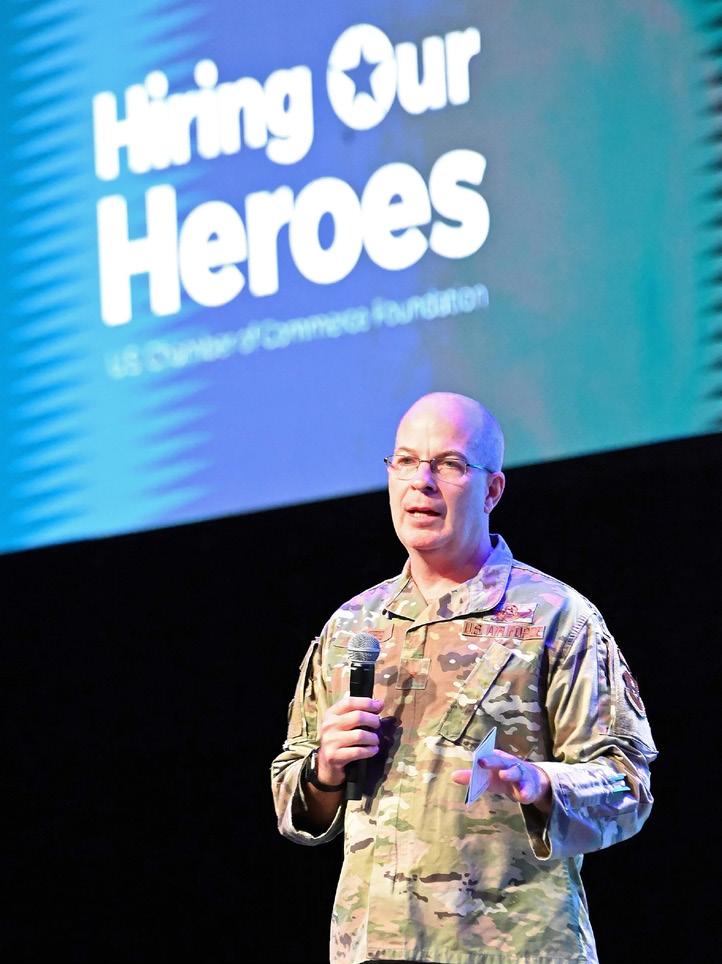
“There are a lot of opportunities for networking and career resources when you’re close to a big base.”
“It’s not so much resources and information that are lacking…I think the gap is that the DoD is not adequately advocating for their communities,” Van Lieshout said. Overwhelmingly, the spouses we spoke to cited the obstacles of military life that make it difficult to access career resources and begin or improve their careers. Spouses noted that the military needs to create more permanent, systemic solutions for the issues that continue to create significant familial stress and often are the reasons why spouses cannot attain full-time, appropriate employment.
Spouses pointed to the disconnect between military leadership’s professed commitment to military spouse hiring and its actuality.
Career resources—no matter how they’re structured—cannot overcome hiring biases that see moves and “resume holes” as liabilities. “I can think of three instances where they [hired nonspouses] remotely, versus hiring the spouses that were there [on the installation],” Murphy shared. “There’s this underlying assumption that the service member’s career comes first and your career is put on the backburner.”
In order to move forward, spouses suggested the following changes—beyond tweaks to programming—that would make a sizeable difference in access to those resources and subsequent career opportunities:
• Readily available and accessible mental health help, regardless of location
• Accessible, safe and affordable child care
• Enforced hiring protections for military spouses
• Education for employers— including those at the installation level—on military spouse employment obstacles
• Creating more force-wide schedule flexibility for serving spouses
• Increasing financial support to fully cover certifications and upskilling costs through MyCAA
These suggestions mirror some of those made recently by the House Armed Services Committee’s Quality of Life Panel Report. Those recommendations include evaluating and growing various federal programs for military spouses; increasing access to specialty medical providers, including appointments for urgent behavioral health needs; and greatly improving child care, including better access to military spouses who are actively seeking employment.
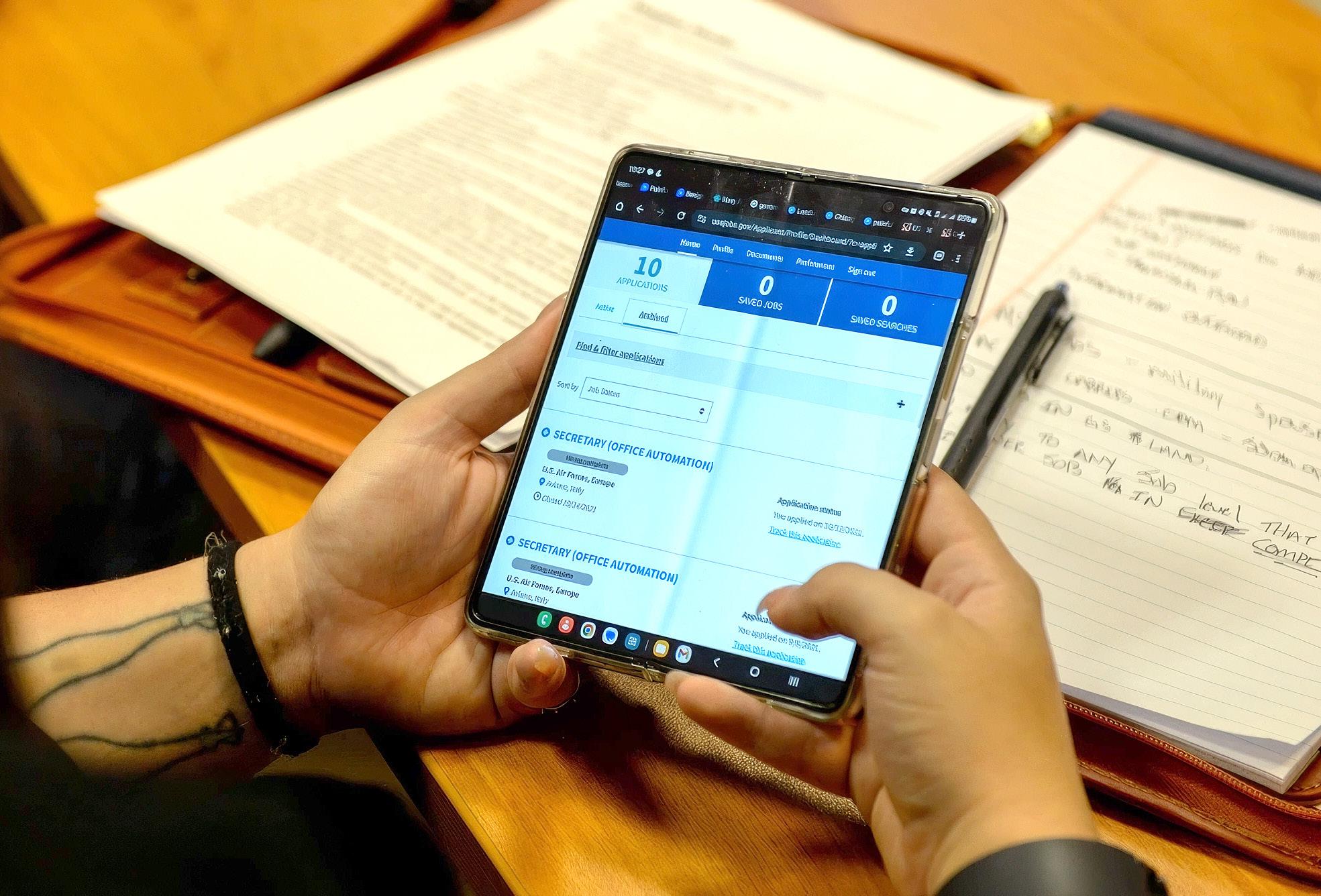

Ultimately, interviewees stressed the importance of those at the top understanding the obstacles that military life presents and how they impact spouses’ ability to access career programs and become gainfully and meaningfully employed. “Military life is not a one-size-fits-all experience,” said Simon. “Some of us have service member spouses with jobs that are very inflexible and it limits our career opportunities. Some spouses have service members who have jobs that are very flexible. We’re all really different.”

Joanna Guldin is the community engagement manager at Military. com . She has worked in the military community for more than a decade, is the founder of Jo, My Gosh!, and co-host of PILLAR: The Digital Retreat for Deployment Countdowns, and her writing has been featured in national and international publications. She lives in Pennsylvania with her Navy veteran husband.
Resource Website Purpose and Audience
MyCAA https://mycaa. militaryonesource. mil/mycaa/
Provides scholarship assistance to spouses who qualify for the government program
Spouse Education and Career Opportunities (SECO)
https://myseco. militaryonesource. mil/portal/
Hiring Our Heroes https://www. hiringourheroes. org/careerservices/militaryspouse-resources/
Government program that provides vetted career and education information and resources to military spouses
A program of the U.S. Chamber of Commerce Foundation, provides career resources and opportunities for military-connected individuals, including military spouses
Participation
21,000 military spouses (3.4%) in 2017 use down by 40% from 2011
Veterati https://www. veterati.com/
Syracuse University’s D’Aniello Institute for Veterans and Military Families (IVMF)
https://ivmf. syracuse.edu/ programs/careertraining/
LinkedIn Premium and LinkedIn Learning https:// socialimpact. linkedin.com/ programs/ veterans/ milspouses
Offers free, unlimited onehour mentoring calls for militaryconnected individuals, including military spouses
Provides a variety of online and inperson career and entrepreneurship resources for military-connected individuals, including military spouses
Provides one free year of LinkedIn Premium and LinkedIn Learning to military spouses
Participant data not tracked according to a 2016 RAND report.
50,000 military community members served; 320 military spouses participated in the Military Spouse Fellowship Program (MSFP) with a 91% job offer rate
Participation rates not posted online.
O2O: 73,000 veterans and spouses; Boots to Business: 76,000. Numbers served are for the entirety of the program since 2007
Participation rates not posted online.
The shoe is one of the most underestimated accessories in your wardrobe. Footwear is the one garment you cannot leave the house without. Yet, finding the perfect shoe to complement an outfit can often feel like a struggle! Will a mismatched shoe choice upset the harmony of your ensemble? Your shoe sets the aesthetic for an entire look. Personal shoe choice speaks volumes about your style while guiding your daily journey via functionality, design and occasion.
Let me explain, if you are heading to a sports event wearing denim jeans and a t-shirt you may choose a white sneaker for comfort, modernity and the competitive nature of the event. In the same tee and denim jeans you may exchange the sneakers for a heel and head out for happy hour which equals evening vibes.

TENNIS SHOE
CASUAL | ACTIVE
Great with activewear leggings, joggers, shorts, skorts or denim with athleisurewear tops.

HEEL DRESSY
Easiest way to level-up a casual outfit; Have fun with color, design and patterns.

CASUAL I ACTIVE
Comfortable and stylish! Great for casual dresses, leggings and jeans.

CASUAL | DRESSY
Offer tremendous foot support; Uplevels casual looks and dresses/skirts.

CASUAL | DRESSY
Refer to professional dress code for open-toed shoes; Multitude of varieties of from heels to flats.

CASUAL | SMART CASUAL
Most versatile option as they are great for work and play providing comfort and personality.
From sneakers to Oxfords, men's shoes offer styles that transcend time. Often the challenge is finding something in between a shoe you wear to the gym and a work shoe. In recent years there have been strides in the casual shoe department. Brands have created comfortable crossover shoes that combine the comfort of a tennis shoe with the design of a dress shoe. These styles include knit which is lightweight and breathable, making them the most versatile of the bunch.
Shoes are a vital component in shaping the overall look and feel of an outfit. The right shoe not only enhances the aesthetic appeal of an ensemble but also contributes to one's confidence and everyday comfort.

CASUAL | ACTIVE
Sporty design and cushioned soles; Best for gym, workouts and jeans.

CANVAS CASUAL
The super casual canvas shoe; Jeans and shorts alike highlight the relaxed feel.

CAUSAL | DRESSY
Modern and sleek! From jeans, shorts to suits, these are super versatile.

ACTIVE
From hiking boots to water sports, this style of shoe is all about functionality and the great outdoors.

CAUSAL | DRESSY
Offered in knit or leather; Dress them up or dress them down; Perfect for everyday wear.

PROFESSIONAL | FORMAL
The classic shoe built with longevity; They are refined elegance in a lace-up shoe.

Erin Hodgkinson is an experienced vCommerce fashion stylist for HSN. She has supported the live show by dressing hosts and models.


Military life frequent permanent changes of station (PCS), deployments and service members’ long, unpredictable hours makes military spouses flexible by necessity. Because military spouses are also a diverse group, they often pursue different paths to meaningful employment.
Spouses are entrepreneurs, freelancers, stay-at-home parents and licensed professionals just to name a few. While no two experiences are the same, these paths, or “personas”, present similar threads in the tapestry of the military spouse experience. Pulling on these threads helps us understand how to assist military spouses so that service members can make sacrifices for their country without sacrificing their families’ happiness. This article the first of two in this series will compare a few “personas”, asking the following questions:
• Why do spouses often transition from one persona to another when they encounter challenges? Is it because they just moved to a new location without job opportunities in their profession? Are they sick of navigating the labyrinthian process of applying for a federal job?
• When is it time for the service member to take on a new
“persona”, or retire from the military and focus on the spouse’s career?
These stories highlight the need for more expansive Status of Force Agreements (SOFAs), flexible work arrangements and an increased focus on career compromise from both the service member and military spouse. The military spouses featured here braved these and other challenges, but they also highlight possibilities for us to get out of our own way and create positive change for their own journey and the journeys of others.
By the time Isabel Schmitt founded LOGSA Mil Moves, a company that helps service members coordinate their PCS moves, she had experienced at least two major career transitions.
The first was her eventual exit from the Army after meeting a “really cute pilot in Iraq.” Schmitt, a Chemical Corps officer, says that she left the military because her husband Peter, “had a cooler job.” She also transitioned out of civilian clerical work when her family PCSed from Germany to Ft. Irwin, California. While she dabbled in federal employment, she felt a pull to make her own way.
“What happens once you get into the federal system is that you get
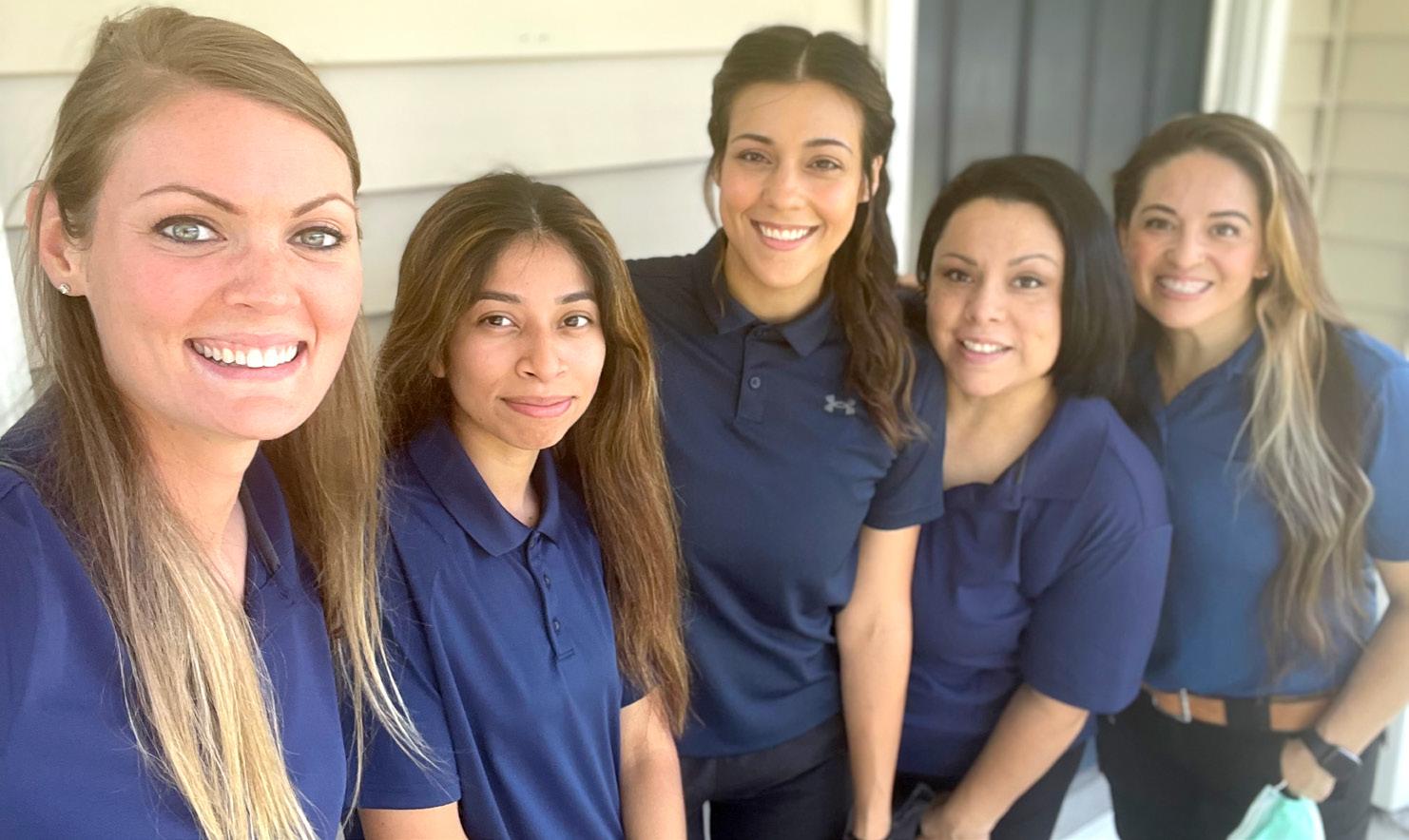
boxed in,” Schmitt said on the difficulty of switching federal jobs.
After she moved to California, she had an encounter with an old Army friend that changed the course of her career. Schmitt ran into Wendy Way, a fellow Army veteran whom she met at a training exercise decades before their reunion. As a civilian, Way managed a contract at Ft. Irwin and hired Schmitt to coordinate the maintenance of a fleet of moving trucks in their motor pool. They both realized they “made a really great team” and could be their own employers, while also finding a way to honor their military service in a more concrete way.
“I’m looking at her, and I’m like, ‘We could do this for ourselves!’,” Schmitt said.
In 2020, they founded LOGSA Mil Moves to reimagine the stressful PCS. LOGSA contracts with family-run and operated companies and manages customer service and quality control so military families who choose not to use federal transportation services have peace of mind as they coordinate their moves.
After having PCSed 13 times as a veteran and military spouse, Schmitt’s all too familiar with the typical stressors: belongings can get broken or lost by Department of Defense (DoD) contractors and filing a claim is so complicated that clerical errors are probable, or the person filing the claim just gives up.
Schmitt calls the bureaucratic slog “shenanigans.” With LOGSA, she says that “there’s no … fighting with claims.”
As a veteran and military spouse, her experience makes her pas-
sionate about creating job opportunities for other military spouses. She hopes to inspire those she encounters to become entrepreneurs. But she doesn’t do so out of charity alone. As an employer, she knows that military spouses’ diverse professional backgrounds—their “personas”— make them a good fit for any job. She wants “to be part of the solution.” In addition to a core team of five military spouses/veterans, LOGSA finds packing and quality control contractors through word-of-mouth and two military spouse job sites, Instant Teams and Twelve Million Plus
“COVID taught us so many valuable lessons,” Schmitt said. “And the greatest of which was that flexibility leads to a more happy workforce.” By employing military spouses and veterans, LOGSA offers a masterclass in retention. Schmitt creates schedules that are compatible with military life. If a military spouse cannot work on Tuesdays and Thursdays because they’re in school, then Schmitt tells them, “You won’t ever get booked on a Tuesday or Thursday!”
“You never want to hoard a person,” Schmitt says. Schmitt hopes to inspire entrepreneurship in the spouses and veterans who contract with LOGSA. “You want a person to grow under your tutelage, under your leadership.”
Schmitt herself is happy with being an entrepreneur, even though there are days when she can’t help but sit on her front steps and cry from exhaustion. She seems fulfilled in being a service provider who truly understands what it’s like to PCS—a stressful yet bittersweet time when military spouses have to find a new job
and say “goodbye” to their friends. “I have purpose and meaning, and I’m happy with the work that I’m doing,” Schmitt says, “I’m satisfied, wholly satisfied.”
Schmitt is just one example of how military spouse entrepreneurs can design their dream job within the confines of a busy military lifestyle.
When Michelle Camp married a Navy officer in 2012, she was working her dream job as an associate at a prestigious law firm. Just four years later, the dream appeared unsustainable.
Camp’s husband was deployed, and she says that, on top of an hour and a half commute, her work became “too demanding.”
She once wrote of her schedule: “Most days, I would come home from work, relieve our nanny, put the girls to bed, and then get back online and work until the wee hours of the morning.”
Camp needed a change, so she switched to freelancing by taking on other firms’ overflow employment and business litigation. Because her business moves with her, it’s easier for Camp’s husband to accept positions requiring a PCS.
“Even outside of the military, but especially in the military … one person gets to have their career,” Camp says on a common predicament for working couples (see NMSN’s letter from the editor).
But in Camp’s marriage, both spouses make sacrifices. While some service members follow a rigid “golden path,” pursuing

linear career promotion opportunities, Camp is “completely involved” in her husband’s career decisions.
When Camp’s husband exits the military, she plans on launching her own law firm. Her husband who will assume primary parenting responsibilities might join the firm as a paralegal/legal assistant.
Compared to other military spouse lawyers, Camp considers herself lucky. Camp says that finding work in law is “hard when you are in a state you have no connections to.”
By the time her family PCSed from California in 2018, she had spent years building relationships that helped her find and onboard freelance clients.
Camp is additionally lucky because, in some ways, her career is flexible. “I know [there are] some jobs that cannot be done from home,” Camp said. “Law is definitely not one of them.” Remote work was essential for Camp to maintain her California clientele.
Still, the military spouse lifestyle isn’t without challenges. While some professions are seeing relief for licensure reimbursement and reciprocity, transferring a law license is still difficult. Freelancing helps professionally, but personal challenges remain. Quickly finding new medical providers for herself and her four children and nailing down a day care center with enough openings is rare.
“I commit to places at a day care in a state that I’ve never been to without ever seeing it,” Camp says. “Luckily, I haven’t had any bad experiences. But it’s absurd to be trying to find new child care from…a different state.”
The willingness to voice these challenges reflects a generational difference among military spouses. Younger generations are dispelling the notion that sharing the hardships of military life is taboo or harms the service member’s career. Camp notices a similar development in law. Young lawyers, like young military spouses, “speak out about things that don’t make sense.”
As a freelancer, Camp has the freedom to practice law without the toxic elements of the profession. She can choose her clients and maintain a flexible schedule in an industry that remains inflexible even after the pandemic revealed the efficacy of remote work.
“It’s gonna be hard no matter what,” Camp says. “Practicing law is hard, but it doesn’t have to be hard for no reason.”
As a Marine Infantry Officer married to a Navy nurse, Luke Pernotto didn’t spend much time dealing with military spouse issues. He says that he dedicated about one day a month to “family readiness”, or in military speak, “keeping spouses happy.”
“I never liked that part of the job,” Pernotto says.

That changed when he became a stay-at-home dad. Pernotto retired after a 20-year career “bookended by 9/11 and the dramatic withdrawal from Afghanistan,” according to his article in The War Horse. His role as the primary parent of their two children enabled his wife to focus on her career.
Pernotto then encountered the kinds of issues that often came across his desk as a battalion executive officer. For instance, he filed an online “ICE” complaint because an installation men’s restroom didn’t have a changing table.
He imagines himself as an executive officer thinking, “We’re trying to fight a war here!” However, Pernotto has gained a new perspective, “I don’t care if you’re fighting a war. I am trying to change a baby in my lap sitting on a toilet.”
The stereotypical military spouse is a woman struggling to find work because of the structural issues presented by military life. This stereotype becomes all the more apparent when the military spouse is a male veteran who once held positions of authority. “I think I’m just now coming out of learning how to cook and learning how to…keep groceries in the house for a week,” Pernotto says.
Pernotto had another typical military spouse experience when his wife received orders to Okinawa, Japan. He had looked forward to putting his master’s in brewing science to use until he read the Status of Forces Agreement (SOFA).
SOFAs are agreements between the United States and countries where service members and families are stationed that outline policies that govern Americans
living overseas. These employment specifications are notoriously vague. One spouse told Military.com that SOFAs are more likely to mention a spouse’s vehicle emission standards than her right to obtain employment while overseas.
The Japanese SOFA specifically forbade Pernotto from his dream job. “I think probably on the second or third page, it was very clear,” Pernotto says. In Japan, he says that SOFA holders cannot work for alcohol-related businesses.
Pernotto tried applying to federal jobs, but that didn’t work either. When he applied via USAJOBS he made one mistake in his application. He simply checked a box that required him to start over. Rather than edit his application to an installation daycare center, a hiring manager told Pernotto to reapply with a different email address.
“It’s also frustrating as you’re going to these extracurricular after-school activities in the daycare,” Pernotto says. “You’re looking at all these parents that are underemployed or unemployed, and you’re like, ‘You [have] plenty of people here.’”
After giving up on federal employment, Pernotto has focused on being a stay-at-home dad who dabbles in beer and spirits writing and hopes to eventually use his brewing science degree. His wife has six years left in the Navy, and they’re uncertain about whether either of them wants a demanding job after her retirement.
Before becoming a dad, Pernotto says he was “more ambitious,” someone who would “jump in feet first.” Now, he says, “I see the benefit the kids are getting from
one of their parents always being there for them.” While many military spouses choose to be stay-at-home parents, some do so circumstantially, making this persona one of the most common, yet least understood.
The Licensed Professional: Sujan

Behavior analyst and Marine spouse, Sujan Pang and her husband, Sam, are pictured on their wedding day.
If PCSing every two years is the norm, then Sujan Pang’s time as a military spouse has been unusual. Since meeting Sam, a Reconnaissance Marine, in 2012, the couple has spent about seven years at Camp Pendleton, California, nearly triple the time of the average tour in one location.
This stability has helped Pang maintain not one, but two demanding careers. She’s a licensed behavior analyst who evaluates children, develops treatment
plans and supervises their therapy sessions. When Pang began her career, she also danced for two Los Angeles athletic teams: the Lakers, and later, the Rams.
“While dancing for the Rams, I was able to complete my master’s degree [and] pass the board exam,” Pang said. “And we did a Super Bowl. It was an exciting time.”
Between the Lakers and the Rams, there was a hiatus in Pang’s dance career after Sam received orders for Hawaii.
“I really thought that I was kind of done dancing,” Pang says. But she reconsidered her “retirement” after returning to California. “I had so many friends [who] I still danced with who were still auditioning for things, and it made me think, ‘You know, why not? I still have a lot of time left!’” She went on to spend four years dancing for the Rams before moving to their current duty station in Virginia. However, the couple is, once again, moving back to California, where Pang has spent over half her life.
For the most part, Pang has avoided the frequent PCS, a stressor that can precipitate a service member’s retirement. For military spouses holding professional licenses, moves can set back their careers significantly as each state and career field have different requirements that spouses must research and apply for to work in their new state.
Pang describes getting relicensed in Virginia as “not difficult” but tedious. “Being a military spouse, you’re used to that,” Pang says. “I definitely had a job [in Virginia] before I got my license.”
In Virginia, behavior analysts must obtain their licenses through the state’s Board of Medicine. Pang says that Virginia offers an expedited process for military spouses, but it still took about two months to receive her license.
“For some states, my board certification is enough,” Pang says. “For other states, you need to be board certified and state licensed.”
A law enacted in 2023 requires states to “recognize service members and spouses’ valid professional licenses from other states for any job except for law licenses,” according to Military.com. But spouses report red tape in proving their licenses’ validity. One licensed military spouse told CBS that, in addition to the coursework required by some states, “you have just the phone calls and the emails and the paperwork that you have to submit for proof of licensure in previous states.”
Pang began her current job as a behavior analyst at an Applied Behavior Analysis (ABA) clinic before she moved from California to Virginia. Remote work facilitated the transition, but Pang says that she cannot do everything remotely. When working with clients, “the actual services or…doing an intake assessment, doing their initial assessment all of that has to be in-person.”
Sam’s career is entering its twenty-first year, and the couple’s return to California makes it easier to imagine that he’ll continue serving. Pang calls herself “lucky” for staying in the state where she earned an advanced degree and worked her way up from a behavior technician, an entry-level position, to a behavior analyst “supervising a team of therapists.”
“How much longer do we stay in…It’s a different answer for him every day,” Pang says.
* * *
These personas the entrepreneur, freelancer, stay-at-home parent and licensed professional offer a glimpse into military spouses’ adaptability. In the next edition of Career Connections, we will feature other military spouse “personas”, including one who found work overseas and one who survived the federal job application process.
The boundaries that separate one persona from the next are blurred in that spouses may inhabit more than one persona. No matter what path a military spouse may take, most share common goals. They take risks to start their own businesses or make a career change, subvert gender stereotypes and work to make the lives of other military families better. Their stories emphasize the need to better understand military spouse employment personas if we want to reverse the military’s dual crises in recruiting and retention.

Shelby Kearns is a freelance writer and instructor at Scholé , a classical Christian school. She volunteers with the civic organization Braver Angels and is on the editorial board of Commonplace , the journal of the Catherine Project. As a freelance writer, Shelby has contributed to America Magazine , The American Spectator, and Fairer Disputations . She lives with her husband, Matthew, a soon-to-be Army veteran.
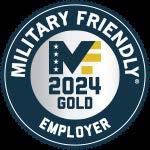
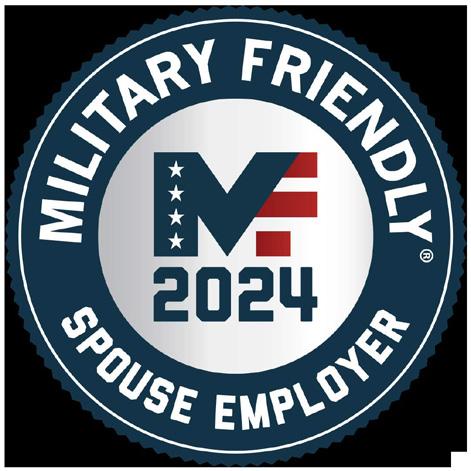



Okay, you have your 30-second elevator speech. You made it to the next level of your multilevel marketing business. You are following and friending people in your industry. But do you have a proactive plan to get out and mingle and find fortune in your follow-up? How many times have you gone to a networking event and collected business cards or connected on LinkedIn and thought about reaching back out to a speaker, but didn’t? Well, without a plan it’s hard to take action. You don’t want to wait until you’re desperate for a new job to look for those dusty business cards.
I previously attended a presentation by Kathy McAfee, author of Networking Ahead for Business, and I decided it was time to chat about authentic networking. Kathy reminded me that we can’t leave networking to chance; we need to work out a plan. It’s not about the number of contacts you have, but rather the quality. As a business owner and busy mom, I don’t spend a lot of time at networking events or on social media, yet I always have more coaching clients than I need. So, I decided to share what I do to help young military spouse professionals get out of their own way.
Kathy touched on a mistake I didn’t even know I was making. As a counselor, I’ve learned that you can’t work harder on someone’s job hunt than they are willing to work, but I wasn’t transferring this knowledge to my networking. I would often spend too much time helping others and not getting my work done. I would meet someone new and just open my Rolodex to help them. Kathy suggested I change to sharing just one tip or contact and then asking them to let me know when they followed up with that lead and then I would share another.
This way the ball is in their court and I’m not putting effort into a relationship they are not willing to maintain. I love it! I also feel that it’s a win/win and so, when someone else is unloading ten suggestions, I may do the same, asking, “Which of these ten suggestions should I act on immediately? And can I reach back out to you after I have seen results?” By checking back in, I not only get another great contact or new resource, I get to reconnect at a later date, or add them to my monthly check-ins.
• Declutter Your Contacts:
I clean out my contacts once a year when I am sending out holiday cards. Don’t waste energy on those who don’t stay in touch. If you KNOW you are never going to call Joe, chuck his card. If you are sick of spam from Jan, unfriend her. And maybe it’s time to thank Paul for keeping in touch and give him a referral for his authentic efforts.
• Reconsider Memberships:
Simply being a member of groups and professional organizations doesn’t reap results. You have to really engage with the groups. So, I find less is more. Therefore, I recently quit some affiliations, not because they were bad, but because with a busy private practice and four young kids, the timing wasn’t right. I found I was a lot more engaged in the clubs I chose to stay connected with.
• Give Away Goodies:
I often give away mugs, candles, journals, necklaces, etc. I give clients “lunch box notes” along with their invoices and bring bookmarks
to events. People love goodies and they make a memorable impression. Even with a small budget you can print out inspiring quotes on cardstock paper and add a company logo.
• Makeover Your Elevator Intro:
I love Thomas Leonard’s take on elevator speeches in his great book Working Wisdom: Lists for Improving Your Business! where he suggests sharing the success stories of your clients. If you do this, you can refocus your introduction on results! At a recent networking meeting a marriage counselor announced himself, saying, “I have been a marriage counselor for 20 years and I just helped a couple on the brink of divorce learn to fall back in love. He is being stationed in Hawaii and they decided to renew their vows when they arrive.” I grabbed his card after the meeting because he didn’t make it all about him, and it sounded totally authentic and fresh!
• Choose a Monthly Theme:
I come up with a theme each month for the events that I host, including my networking. It’s all around a theme that helps me think of inspirational quotes, speech topics and article ideas. It’s an amazing way to focus and increase productivity. Clients say this monthly focus has helped them get raises, get more clients and create more lasting relationships.
• Email Your Inner Circle Monthly: Reach out to people who have “liked” your business and add them to your more intimate email lists. Remember to email at least monthly. I like moving people off social media and into my personal Rolodex. Is there someone you see online that you can connect with for coffee? If you take one to two minutes a week to reach out to someone new, you can create 52 new relationships a year.
• Express Gratitude:
Congratulate and thank people whenever you can. I’ll never forget the day I was sitting at my desk and received a large bouquet of yellow roses from Sue Hoppin, thanking me for a small gesture. It was kind and created an authentic connection.
I now take one day a month to mail a leftover memento or good book to a colleague I want to thank and keep in touch with.
• Attend Live Events:
I mark my calendar with the networking events I will attend, and I check with clubs where I can’t attend to at least add the speaker to my contact list, reconnect with colleagues, etc. Your fortune is in your planning and followup. So, make time for pre-event emailing, actually attending the event with cards and treats, marking keywords on business cards to jog your memory and making time in your calendar to follow up. You just can’t get the same results online that you can face-to-face!
• Simplify Your Social Media Strategy:
I teach a star marketing technique to my clients, a simple social media time management plan. Because it’s personalized to what you like to do best, your networking is always authentic and never cheesy. It’s all about service, not sales. Pick what works for you! I’m a fan of commenting on other social media accounts that I admire and reaching out to my favorite podcasts and offering to be a guest. Be consistent and you will reach more of the right people and have way more fun! I do something quick over my morning coffee rather than getting wrapped up online all day and not focusing on other aspects of my business. Simplify your strategy by focusing on genuine engagement and meaningful connections rather than chasing numbers and trends.
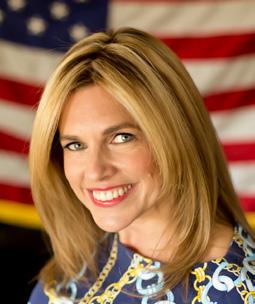
Krista Wells, Ph.D., The Military Spouse Coach® , is a certified life coach that loves working with motivated military spouses. She writes and speaks to military spouse groups, teaching them how to set goals and make their side hustles happen! She recently co-authored a fiction book titled An Imperfect Plan , under the pen name Addison McKnight.
I get out of my own way professionally and personally by listening to trusted advisors.
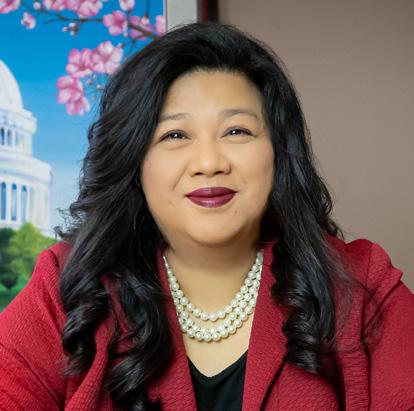
Sometimes the more I know about a topic the harder it is to be objective. I have to intentionally take a step back to remove preconceived notions in order to tell new stories.

While working on a writing project, I have to tell myself that it's worthy of publication. Otherwise, I'll lose confidence and abandon the project.


In my career, getting out of my own way has meant letting go of the perfect plan and staying open to opportunities that might not look perfect on paper. I've had to stay focused on my reality. I love the phrase "do the next right thing," and I've really clung to that as I navigate tough career choices alongside my husband.
To get out of my own way I look at my vision board (a visual display of what I want in my life). A clear vision helps me to stay focused on my long-term goals and align todays small action steps with an inspiring business vision all while steering me away from self-doubt, decision fatigue and it helps keep my personal and professional goals more harmonious.


I am not a natural networker. After leaving teaching as a new military spouse and entering the world of freelancing, I had to get out of my head and learn how to meet folks professionally and effectively. More than ten years later, I'm proud of the skills I've built that have taken me to many places in my content creation career.

The military lifestyle created inconsistencies in my career path and I had to come to the realization that the unique life experience of said lifestyle along with adaptability would still get me my dream job.
Since I met my husband almost ten years ago, I have graduated from a traditional undergrad program, a remote graduate program and am currently enrolled in a hybrid doctoral program. Staying focused on my education through three moves and five deployments hasn’t been easy, but it’s allowed me to steadily grow my career. Most importantly, it’s given me confidence and fulfillment, which can be hard to come by as a military spouse.
As I navigated my educational options, I found a lot of misinformation and bad advice about college being promoted to military spouses. Many of us in this com-
munity have degrees that haven’t translated to better jobs or higher salaries. In a lifestyle as complex as ours, enrolling in a program just because it’s affordable or convenient isn’t necessarily going to serve us.
When considering going back to school as a military spouse, the most important decision you can make is committing yourself to getting the most you can out of your time and money. Once you make the commitment, spending the required time and money to do it well and hopefully do it once, will benefit you for decades to come. Here are some of the things I considered when investing in my education.

• For-profit vs. nonprofit colleges
• Public vs. private
• Accreditation
• Research designation
I did a lot of research before making any decisions. It’s important to understand what a “for-profit” college is, the difference between “public” and “private”, and the differences between accreditation agencies. I researched any lawsuits against colleges that were being advertised to me and looked them up on both the Department of Education and the Federal Trade Commission’s websites. This research led me away from popular for-profit schools that are known for recruiting heavily from the military community, but don’t offer much academically.
While deciding, I compared prices, spoke to recruiters and read up on the scholarship of my would-be professors. For grad school, I was torn between two remote programs. One was a pricey private college in Washington D.C. and the other was a respectable public university in New York. Ultimately, the differences between the schools lay in the networking and internship opportunities offered at the D.C. campus, which I wouldn’t

be able to enjoy as a remote student. So, I picked the public college and saved $40,000 which I have been able to invest in my doctorate instead!
• Remote vs. in-person
• Networking & professional opportunities
• Synchronous vs. asynchronous
• Residency requirements
When paying tuition, you’re not just paying for the classes you take, but access to all the resources the institution offers. Because of this, I have preferred to be plugged into colleges with big in-person campuses, even if I am learning remotely. This allows me access to better research tools, more professors and a bigger community. I didn’t love asynchronous courses, where learning is independent with no face-to-face
time. Synchronous courses allowed me to connect with not just my instructors, but my classmates too. Higher education is a commitment, and sometimes for the best programs, a hefty time commitment is required. For example, reputable doctoral programs will not be fully remote. I have to travel to campus four times a year for an in-person intensive, which can cost a lot to cover travel, nights at a hotel and food. But the networking and relationships built during those weeks are priceless.
• Costs vs. experience gained
• MyCCA & G.I. Bill
• Scholarships
• Discounted rates
For me, it was important to weigh the costs of my education against my career goals. Just having an “MBA” or “MS” next to your name won’t automatically make you more marketable; it’s the experience and connections you make while studying that develop the value. Unfortunately, I did not qualify for My Career Advancement Account Scholarship Program, known as MyCCA, which is limited in its utility. I also did not have access to my husband’s G.I. bill, as we agreed we didn’t want to take on the extra service commitment to do so and he was interested in also getting his masters once he completed his service. Some schools I looked at had special discounts for military spouses, but I wanted to make sure I was picking the best program for the cost. Some programs that promised a degree in 18 months for a low cost seemed “too good to be true” because they were.
While everyone has a different income and budget, I utilized a payment plan through my college. Instead of having to pay several thousand dollars upfront, my payment plan divided the cost of tuition evenly throughout the year, so I was paying a smaller monthly bill without any interest. Usually, you can get these payment plan programs interest-free for a whole academic year. Certainly, it’s been a big sacrifice to put a percentage of my salary back into my education, but I’m confident it will have a larger return on investment in the future.
When making any decision to invest time or money into my education, I usually work backward from my long-term career goals to consider if the program I am interested in is the best option to help me get there. If you have big dreams for your career and education too, research, intentionality and commitment to the right program can catapult your success and open opportunities you didn’t know existed. I know it has for me!

Sarah V Diehl works to improve policy and program solutions in the higher education and workforce development spaces. As a military spouse of nine years, Sarah is eager to help all military spouses reach their goals. With a BA and MPA, she is currently enrolled in her Doctorate of Law and Policy at Northeastern University, where she is focused on data-informed policy changes to create education and employment opportunities for those navigating government systems.

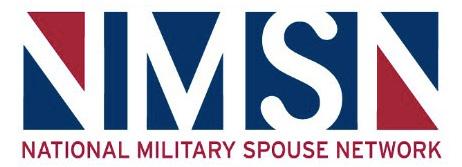

This year’s recommendations are made with the goal of eliminating the barriers that have been inadvertently created in the process of conducting business as usual. They seek to encourage truth and transparency, accountability, and innovation in future solution and policy making that supports those who support our nation’s finest.
RECOMMENDATION #1:
Eliminate the false narrative that we have to choose between helping service members and veterans or military spouses. Pitting one military demographic against another promotes a culture of divisiveness, negativity, and inequity that doesn’t align with the military’s core values. Organizations should seek to build a unified military community that joins forces to solve “our” problems.
RECOMMENDATION #2:
Determine and clearly articulate the problem being solved. Be willing to go back to the basics to redefine the questions, be more granular to better capture the diversity of experiences and challenges, clarify parameters, and consider new solutions.
RECOMMENDATION #3:
Develop original solutions to understand and address the military spouse unemployment rate that do not mirror ones targeted to service members and veterans. Use a design thinking framework to define, ideate, prototype, and test unique solutions. Sample deliverables could include new surveys that ask different questions than previous ones and virtual spaces that empower spouses to share their employment stories.
RECOMMENDATION #4:
Do a better job of evaluating existing programs, resources, and partnerships to determine if they are truly working in support of military spouses. According to the recently released Strategic Plan, the Federal Government has committed to raising the bar on data collection. We encourage private industry to do the same and increase the availability of data, illustrating key employment metrics and outcomes.
RECOMMENDATION #5:
Break down stove pipes and communicate more effectively across agencies and functions. Supporting the Biden-Harris Administration’s goal to have the federal government become the premier employer of military spouses will require interagency and cross-functional communication.
RECOMMENDATION #6:
Problem-solve employment issues for military spouses through a wider aperture. Consider the entire military spouse life cycle that includes the period of time post-service member retirement/separation to assess and resolve systemic employment issues that may be interrelated.
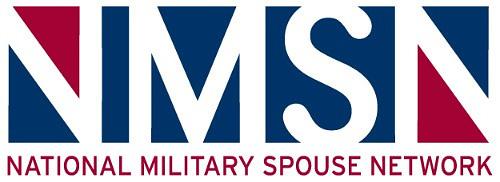


April 2024's White House Memorandum of Agreement signing between DoD and the State Department signifies a shift to working on the incremental progress required to affect change. We first wrote about the issue in our 2022 White Paper and raised the issue to stakeholders and leadership, but we could only open the door for military spouses. These NMSN advocates worked the change by organizing, gathering information and anecdotes about how they were impacted when DETOs were curtailed and put numbers and faces to the issue.
This is a powerful testimony to effective advocacy at work.

